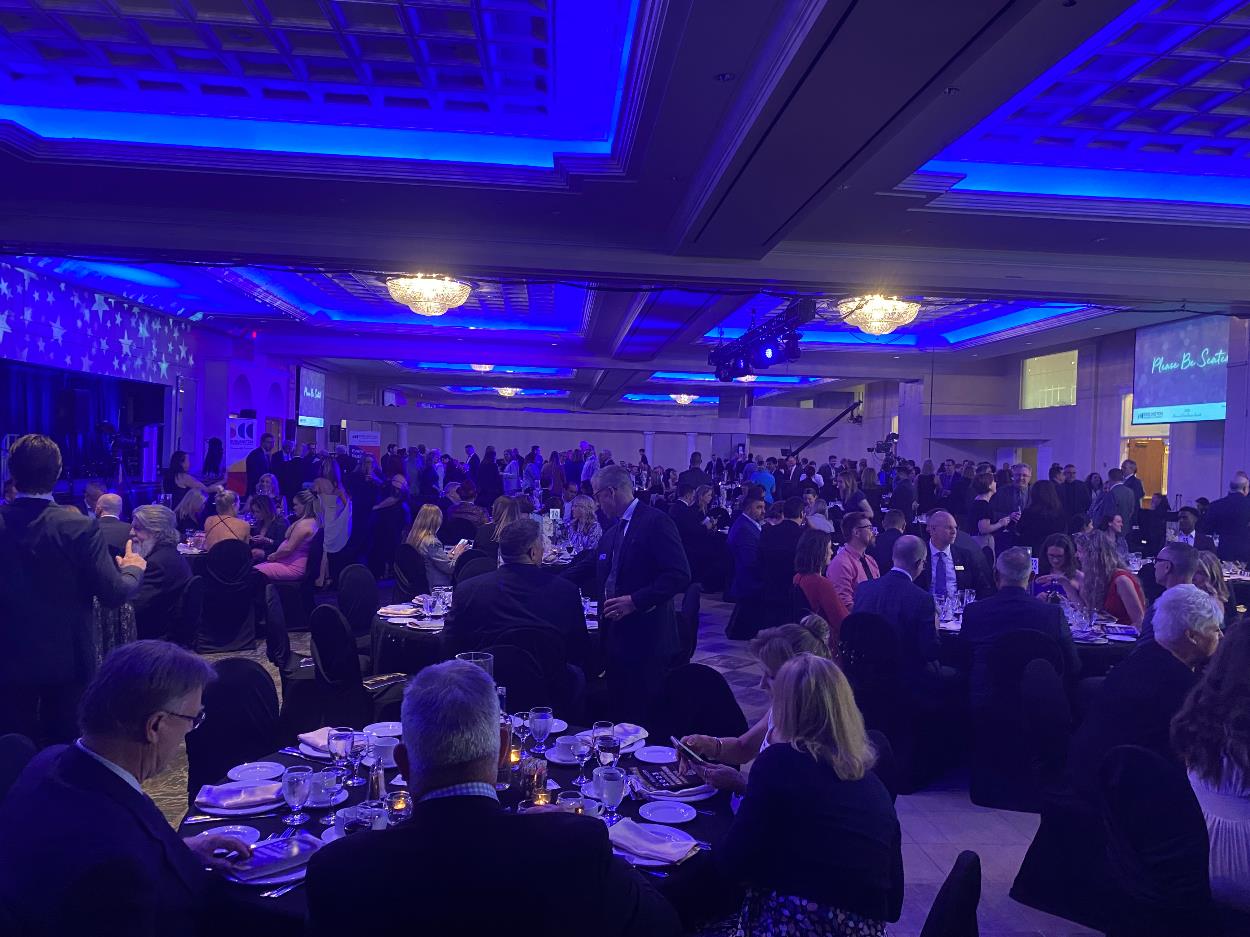“Consistency trumps intensity,” says Mary Ann Wenzler-Wiebe, one of the panelists at the Women Leaders and Allies event, hosted by the Burlington Chamber of Commerce on March 1, 2023.
A sold-out event at the Burlington Golf and Country Club, its focus was to raise awareness of the barriers that women and allies still continue to face in business, and celebrate the pioneers who have broken through such barriers to be the leaders paving the way for change today.
The event’s keynote speaker, Tabatha Bull, is the president and chief executive officer of the Canadian Council for Aboriginal Business. Bull shared her experiences about her dedication to diversity and efforts towards removing systemic barriers to improve the opportunities for Indigenous businesses and women across all industries in Canada.
This year’s theme for International Women’s Day is to “Embrace Equity.” According to Bull, equity still fails to meet the mark, both in Canada and on a global scale. “How do we embrace something that does not yet exist?” asks Bull. Arguably, a valid point, and she followed that up with full support for the use of the word “equity” over “equality.”
The World Economic Forum has been measuring the Global Gender Gap Index since 2006. This index looks at four key dimensions: economic participation and opportunities, educational attainment, health and survival, and political empowerment. In 2022, this index was measured across 146 countries and found that on average, the Global Gender Gap sits at 68.1%, which means that there is a gap of 31.9% to close. At this current pace, according to Bull, it will take us 132 years until we have global gender equity — almost 250 years after International Women’s Day began. Bull reassures guests that there is good news, though. First, it is a slight decrease over the 2021 report that suggested it would take 136 years. Secondly, in North America, the gap sits at 76.9%, with an estimate to reach parity in 59 years.
Still, women are undervalued, underpaid, and underrepresented. That is the reality that we live in today, and Bull shared those sentiments. Violence, harassment, and judgement continues to be something that women face, both in the workplace and in their personal lives.
Quite profoundly above all was Bull’s sharing of her personal familial experience — that of her Indigenous grandmother marrying a Scottish man, which would inevitably mean that she would have to leave the reserve she lived on, and her family behind. As a result of the Indian Act, Bull’s grandmother’s family was completely torn apart. It wasn’t until the act’s amendment in 1985 that her grandmother could again, and her father, for the first time at age 40, be allowed to register as Indian and be considered members of their nations. Bull carefully used the word “allowed,” and wanted guests to know that it was really about re-acquiring something that was already theirs to begin with — their identity.
The unfortunate reality is that we hear these stories all too often. According to Bull, the Indian Act not only undermined the role of women, but also dissolved their status in their community. Gender discrimination still exists within the acttoday, and it is done so with intention and purpose, says Bull.
What type of barriers are there for all women getting into paid work and leadership? Global and societal expectations, employer policies, the legal environment, and the availability of care all play an important role in a woman’s choice for education and career, says Bull, and she certainly isn’t wrong. While equal opportunities may seem to exist, equitable access to success are not provided.

In Canada, despite the lack of equitable means for success, women continue to thrive and claim space professionally, which is a positive path to be on. Sustainable economies with gender equity need to continue to be the goal.
Although we, as a society, continue to tell young women and men to be fearless, Bull says that doing that alone doesn’t leave room for humility and passion, and that’s also very important. Fear, as a feeling, isn’t wrong, and continuing to challenge the status quo and building diversity is critical.
Following a brief question and answer period with Bull, event moderator Michelle Eaton introduced three individuals joining the panel discussion: Christine Monfriese (of Monfriese Rum Cakes); Mary Ann Wenzler-Wiebe (of the Business Development Bank of Canada); and Pam Damoff, MP Oakville North-Burlington.
These leaders bring vast experience to the room, each with a strong leadership journey to share.
Monfriese is a former Toronto bus driver, who after seven years jumped on the opportunity to open her own rum cake bakery. Beginning with a brick-and-mortar shop in the Niagara region right as the pandemic was unfolding, Monfriese has completely pivoted to an online platform, shipping across Canada. Still, there are challenges being product-based, as samples sell the product. Leading with an entrepreneurial lens, Monfriese doesn’t let that stop her and continues to pivot.
Wenzler-Wiebe, who credits all of her work ethic and leadership style to growing up on a farm, has embodied authentic leadership. She believes that we all have a role to play in fixing situations where inclusivity isn’t embraced. Perfect opportunities don’t happen, and she firmly believes in creating your own opportunities. They don’t need to be perfect, but you need to put yourself out there, says Wenzler-Wiebe. “Am I moving the needle?” is a great thought process to adopt daily in all that you do, she says.
Damoff started off her political career working in Ottawa. Eventually landing in finance, her commitment to family led her to make the decision to not move upward within the company. Years later, she found out that the company didn’t want her going to meetings anyway, simply because she was a woman, despite her excelling in her role. After serving on Oakville town council, and now as an MP, Damoff believes that the critical skills for effective leadership are taking the time to listen and bringing your team along, while also aiming for understanding.
Key takeaways include being bolder, embrace failure quickly, and keep building.
International Women’s Day is celebrated each year on March 8.




